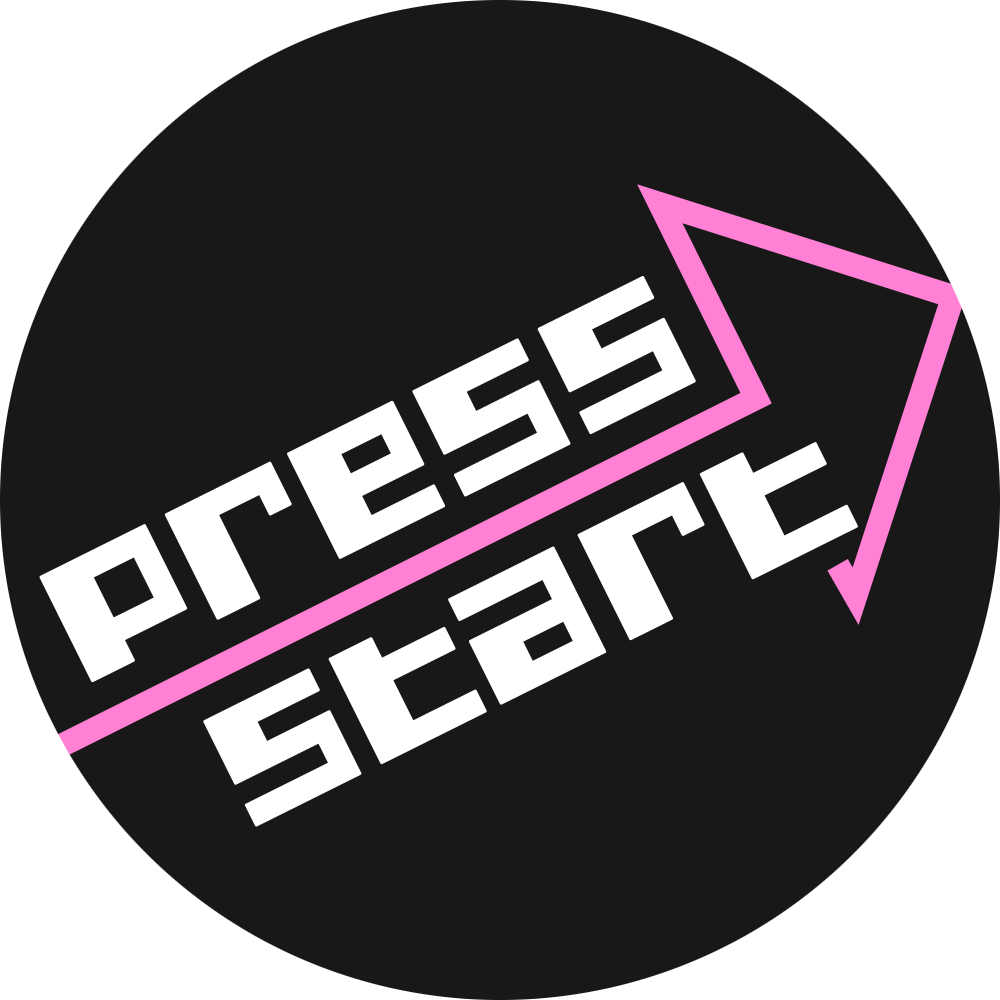I used Plex for my home media for almost a year, then it stopped playing nice for reasons I gave up on diagnosing. While looking at alternatives, I found Jellyfin which is much more responsive, IMO, and the UI is much nicer as well.
It gets relegated to playing Fraggle Rock and Bluey on repeat for my kiddo these days, but I am absolutely in love with the software.
What are some other FOSS gems that are a better experience UX/UI-wise than their proprietary counterparts?
EDIT: Autocorrect turned something into “smaller” instead of what I meant it to be when I wrote this post, and I can’t remember what I meant for it to say so it got axed instead.
VLC absolutely wrecked Windows Media Player. Firefox was the same with IE.
I really don’t miss trying to find codec packs to install. Good riddance.
Did you know that MS now charges for you to play some codecs with windows media player?
Unless something has changed recently, that’s not exactly true. They charge 99c for the distribution of it through the windows store (or whatever it’s called) but you can install them the traditional way no problem
I think it’s still dumb but it’s a distinction worth making. I think the description even links the website where you can download it
Windows Media Player wrecked its own dumb self. It was good right up to Windows 2000 and Windows ME (which is a whole other kettle of fish), and then it got bloated, unintuitive and it kept nagging you for random shit. VLC is a great app, don’t get me wrong, the bar was not all that high is what I’m saying.
I have still yet to see any other media library handle so many tens of thousands of audio files of varying encoding & naming conventions, so smoothly; “Media Monkey” etc were oft recommended but never once up to the task. Until just a few years ago, it was remarkably convenient for ripping a CD, too; correct metadata & all.
For a short while, WMP was to music files, as Calibre is to ebooks.
Bitwarden password manager. I’ve used several proprietary PW managers, Bitwarden is by far the most stable, intuitive, and functional IMO.
Also KeePass, I’ve switched from bitwarden to KeePassDX on mobile and set up syncing to nextcloud and google drive. Aegis for time based OTP’s.
Keepass can also do TOTPs.
Bitwarden is so good. I cant be bothered to self host it tbh, but ill gladly throw money their way for premium for having the best cloud-hosted PW manager
Bitwarden is to me the simplest and most effective PW manager, just perfect at what it does. I however switched from Bitwarden to Proton Pass only because the latter has a mail aliases generation integrated (with Proton Unlimited)
You can setup anonaddy or duckduckgo with bitwarden to generate alias emails automatically. The best setup we get for free.
I’ve been looking for a good password manager, and I’ve heard a LOT of good things about Bitwarden… guess I’ll have to bite and see what all the fuss is about!
Pro tip : if you self host use vaultwarden. It’s 100℅ compatible with all bitwarden clients but has many more features and is lighter weight
OBS is so good that I don’t know why anyone would ever use X-split.
I adore OBS. I’ve been teaching my friends the basics on how to use it, as they’ve all been using some proprietary crap that makes their lives marginally easier in one or two areas but adds a huge headache in others.
Do you have any videos? Can you record tracks and musical production type stuff?
I am by no means a master at OBS, and I wouldn’t know where to point you to learn. Everything I know I’ve learned by either poking around in the software or googling specific questions, i.e. “how to overlay twitch chat in OBS”. As you can probably guess, I used to use it to stream to twitch. Not very suddenly, mind, but I did it. Lol!
OBS is designed for streaming out and recording video, not really for music production. I’m sure there are some FOSS music production softwares worth checking out, though!
Obs?
Software for recording and live streaming. Stands for Open Broadcasting Software. It is the industry standard at this point.
Signal. Who else is making a post quantum secure e2ee algorithm and making sure the code is open source and not duplicating the keys everywhere? Thank goodness for the kind devs on this project and for other FOSS projects everywhere!
how do we even know something is quantum secure, like the tech isnt out yet is it?
Because we already know how quantum encryption works.
It’s like how we proved the Halting Problem was undecideable long before the first computer was ever built.
This might be helpful: https://m.youtube.com/watch?v=-UrdExQW0cs
I’m guessing they can say the methods of encryption are “1 way” ie unreversable, and therefore quantum resistant (the way that quantum solves equations).
Not quite, no encryption is truly irreversible (that’s the point). We’ve built quantum computers and we know how they work. We found weaknesses in the prime number generation that powers most encryption, so we’ve built around that.
The time when they essentially went closed source to implement MobileCoin in kind of a covert operation really didn’t do them any favors, though.
VSCodium is better than most text editors. BTW, if you didn’t know, you can still install some (turns out not all of them will work so you might still need the proprietary build from MS) extensions from Microsoft’s store manually.
ShareX is the best software I have ever found for taking screenshots and/or quick gifs/videos. It’s a real shame it doesn’t have a GNU/Linux version, it’s the only app I miss badly from my Windows days. Any other screenshot software is just nothing in comparison with it.
Joplin is my fav note-taking app. I have tried a lot of them but this one just works, has quite a big feature set, can synchronise using different mediums, from Dropbox to using Syncthing and synchronising files locally, doesn’t look poorly, is cross-platform, has e2ee, doesn’t cockblock you with paywalls. For me it’s the perfect note-taking app.
Aegis is the best 2FA app for Android there is atm. IIRC, it got created because Google Auth had some problems with privacy so the whole idea of Aegis is to be the better option.
Lichess — a chess server with no BS and there are 0 paywalls. chess.com would force you to pay for stupid things like puzzles, with Lichess I am able to procrastinate with chess. For free.
NewPipe is the best YouTube client there is. For me, it’s because of fast-forward on silence and the ability to unhook pitch and video speed. That means you don’t have to either waste your time on literal nothing or struggle to understand what a person is saying anymore. NewPipe also gives you everything YouTube Premium does.
Have you tried flameshot? Its an opensource and cross platform screenshot utility.
Thanks for the praise! We’re not on Lemmy too much, but someone in the Core Team caught site of this and shared it with me. If you’re wondering who I am: github
I’ll take LibreOffice Writer over MS Word anytime. All that ‘I know better than you,’ ‘You wanted to copy the space, too, right? Even though you stopped marking before it,’ can kiss my ass.
I recently switch to OnlyOffice for their UI/UX, and it’s been brilliant. LibreOffice is a delight, though.
Blender. I feel pretty confident in saying that there is simply nothing like it in the commercial world. Its feature set is unreal; its like the swiss army knife of 3D modelling programs. I can’t say enough good things about Blender. It has replaced so many secondary programs in my workflow and is slowly dominating to become my entire workflow.
It used to suck to use in the late 2010s and then work was done to overhaul its space-shuttle cockpit interface, and now it actually feels concise and usable. I freaking love blender now. Big time blender fanboy right here.
As someone who gave up on Blender back in the 2010’s, I may need to revisit it.
Blender for video editing. I haven’t even touched its 3D animation features.
Calibre vs… em something that’s not calibre.
I’m honest not sure what I would use instead, but it would be hard to replace.
Uhh… yeah, I’m stumped trying to think of the proprietary alternative to Calibre, too. I don’t think there is one in the mainstream? Everywhere I look, the only recommendation is Calibre.
Honestly I hated Calibre. The worst part was how it just couldn’t render some books properly, and there was no way to zoom many of them, even via CSS. Readability is #1 priority, but Calibre was absolutely broken for a lot of that.
I ended up using software that could made thumbnails from PDF, CBR, CBZ, and ePUB, then I used Sumatra for all of it.
It never occurred to me, that people would use calibre to read books. I only use it to move books between devices (kindle →PC ⟷ smartphone) and to strip DRM. The stripping of DRM is actually my primary motivator to use calibre.
My Pop!_OS system has never shown me ads for Candy Crush.
And KDE looks so much better than windows’ DE. It’s also more versatile.
Gnome just copied Apple, which I guess somebody had to do in order to have them switch to something that looks familiar.
Actually, Apple copied GNOME.
I just installed Ubuntu server on my little home server which has faithfully run Windows 10 Pro since it came out. I didn’t want to deal with the ads on Windows 11. I ssh into the Ubuntu install and there is an ad in the terminal!
Removed by mod
This is a fantastic list, thanks so much ♥
Removed by mod
Wait, is 7zip not available on Linux? Then what have I been using??
xzcomes with most linux distros nowadays and uses the same compression algos as 7zip, and works very similar togzipRemoved by mod
In general I like your list, but you should not recommend uTorrent to anybody for several reasons, they have pulled a lot of bullshit before, they have ads, and they possibly might be giving feds a back door, but I can’t prove that by any means.
Removed by mod
Fair enough, but considering the possibilities and the shitty things they’ve verifiably done, knowing that QB is available on both, it just seems like a bad idea to recommend uTorrent.
Firefox/LibreWolf
FF is the way. I found out you can get Edge on Linux now and threw up in my mouth. ☺️
If you ever feel your job is useless, remember it is someone’s job to maintain Edge for Linux.
I wonder what % of Linux users are using Edge, and what their reasoning is.
“Every morning while I drink my coffee, I start up Ubuntu, load up Microsoft Edge, have a good laugh, and then close it.”
I love this.
Our webapp is exclusively used on locked-down windows machines, with Edge only. Firefox and Chromium are useful for debugging, but testing and signoff is done in Edge. We use Linux machines for development and test suites, so having Edge available on these systems reduced a lot of complexity in our pipeline.
Anything other than that, Firefox every time.
VLC >> everything else
One thing that I hate about VLC (hasn’t made me drop it in 15 years but alas) is that you can hit E to go forward one frame but there’s no key (nor capacity to set your own) to go back one frame.
Is it a niche use case? Sure probably. But not having the option to set one myself kills me whenever I frameskip one too far and have to shift-left and mash E again.
i don’t think it’s a niche feature, and totally agree, very annoying. there’s some long technical explanation about like stream buffering but i don’t care, many other players have it. you can rewind but not rewind 1 frame?
From what I recall it has to do with encoding and how the data stored references the following frame but not previous. Still seems like some engineering could be done to solve, so it it’s not as simple as “current Frame–”
VLC is heavily bloated with features you need a guide to use (may as well use a command line tool if you need to refer to a guide every time). It crashes (or did about 2 years ago) some of our Linux systems. MPV spanks the piss out of it.
Emacs and vim are both vastly superior to all other text editors.
Which one you like better is a matter of taste.
Vim is a girlfriend with rock hard abs who wants to take you rock climbing and of whom you’re secretly a little scared.
Emacs is a big bouncy happy girl who wants to take care of you in every conceivable way, then split a bucket of RAM while binging pirated movies.
Unrelated but I’ve got the urge to use Vim more now.
Vim is a great input method for other text editors like intellij or vscodium. The actual text editor? Nah.
vim unclips your carabiner with a disappointed look
Ah, sexism is alive and well in tech.
In my case, lesbianism.




















